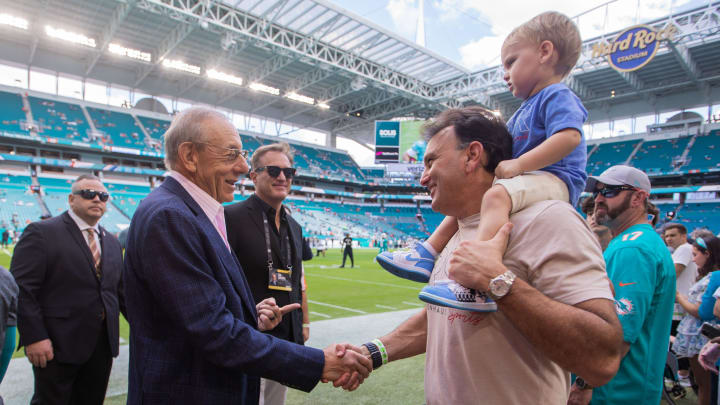Football Super Agent Shares Bold take on Controversial NIL Landscape

The landscape of college athletics has shifted significantly in the last few years, between the institution of NIL rights and the transfer portal changing the dynamic between players and schools.
Super Agent Drew Rosenhaus has gone on record regarding the pressing need for more structure in the current NIL system. Recently, he spoke to Phillip Dukes of On3 and said that making the athletes employees and thus being able to unionize could be a way to have a much more organized method with NIL in the future.
"I think that would be great, and then that would allow college athletes to unionize. It would allow for a more structured approach to NIL," said Rosenhaus. He knocked the current system for having too few rules and regulations, creating an uneven playing field dominated by the wealthiest collectives in recruiting.
Rosenhaus's proposal for a salary cap is grounded in the idea that it could promote fairness across all major conferences, ensuring larger schools with deeper pockets do not have an overwhelming advantage in recruiting, significantly altering the competitive balance of college football. "I believe in NIL. I think it's great for everyone involved," he said. "But I do think that there needs to be structure, that all colleges in major conferences should operate with a salary cap like we have in professional sports."
A college football salary cap raises some pertinent questions. How would a salary cap be controlled by different conferences and schools with their varying budgets and priorities? How will a salary cap affect the competitive balance of college football, especially in a game where tradition and regional pride play such key roles?
Though not without its defects, the Rosenhaus proposal still has vocal supporters. Many college football coaches are among those in the sport favoring more regulations on NIL, and there seems to be a growing consensus within the sport that a financial cap of some type is necessary.
While a college football salary cap is nowhere near implementation, the state of the sport continues to change by the minute, making it a conversation worth having. In that respect, as the NCAA and individual conferences continue their long march towards getting this precisely correct, a salary cap will become an attractive option to ensure that college football remains competitive and fun to watch.
